In recent years, the prevalence of type 2 diabetes has been on the rise, affecting millions of people worldwide. This chronic condition is characterized by high levels of glucose in the blood, which can have serious long-term health consequences if not properly managed. While factors such as genetics, lifestyle, and obesity play a significant role in the development of type 2 diabetes, dietary choices also play a crucial role in managing the condition. One such popular snack that has piqued the interest of researchers and individuals with type 2 diabetes is dry roasted peanuts. Dry roasted peanuts are a versatile and nutritious snack that is enjoyed by many around the world. They are a rich source of various nutrients, including protein, fiber, healthy fats, and essential vitamins and minerals. However, when it comes to their impact on type 2 diabetes, there are mixed opinions on whether they are beneficial or harmful for individuals living with the condition. On one hand, dry roasted peanuts have a low glycemic index, which means they cause a slower and more gradual increase in blood sugar levels compared to high-glycemic index foods. This can be beneficial for individuals with type 2 diabetes as it can help prevent spikes in blood sugar levels, which can be detrimental to their health. Additionally, the high protein and fiber content in dry roasted peanuts can help promote satiety and prevent overeating, which is important for managing weight and blood sugar levels in individuals with type 2 diabetes. Moreover, dry roasted peanuts are a good source of monounsaturated and polyunsaturated fats, which are known for their heart-healthy benefits. These healthy fats can help reduce inflammation, improve cholesterol levels, and lower the risk of developing cardiovascular complications, which are common in individuals with type 2 diabetes. By incorporating dry roasted peanuts into a balanced diet, individuals with type 2 diabetes can potentially reduce their risk of heart disease and other diabetes-related complications. However, despite these potential benefits, it is important for individuals with type 2 diabetes to consume dry roasted peanuts in moderation. While they are nutrient-dense and offer various health benefits, they are also calorie-dense, which means eating them in excess can lead to weight gain and potentially worsen blood sugar control. Portion control is key when it comes to enjoying dry roasted peanuts as a snack, and individuals with type 2 diabetes should be mindful of their serving sizes to avoid consuming too many calories. Another consideration when it comes to dry roasted peanuts and type 2 diabetes is their salt content. Many commercially available dry roasted peanuts are seasoned with salt, which can contribute to high blood pressure and other cardiovascular issues, especially in individuals with diabetes. Excess sodium intake is a common concern for individuals with type 2 diabetes, as it can lead to fluid retention and worsen blood pressure control. Therefore, it is important to choose unsalted or lightly salted varieties of dry roasted peanuts to reduce the risk of these potential complications. In addition to their impact on blood sugar levels and cardiovascular health, dry roasted peanuts also offer a range of other health benefits that can be especially valuable for individuals with type 2 diabetes. For example, the antioxidants found in peanuts, such as resveratrol and vitamin E, have been shown to have anti-inflammatory and protective effects on the body’s cells.
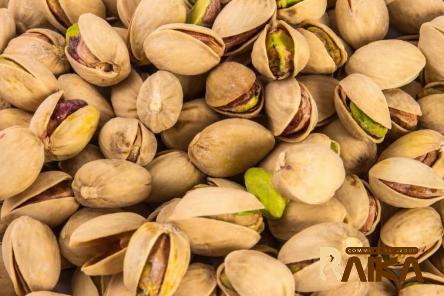
.
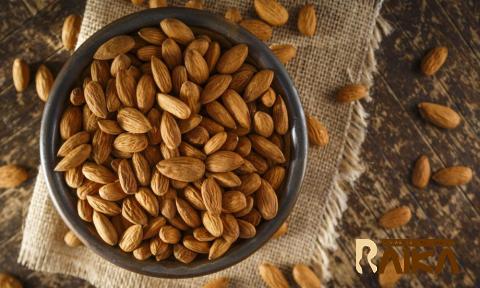 This can help reduce the risk of chronic diseases and complications associated with diabetes, such as nerve damage, vision problems, and kidney disease. Furthermore, the fiber content in dry roasted peanuts can help regulate digestion and promote gut health, which is important for individuals with type 2 diabetes who may experience gastrointestinal issues due to the condition or medication side effects. Fiber helps maintain healthy bowel movements, prevent constipation, and support the growth of beneficial gut bacteria, which play a key role in overall health and immune function. When it comes to incorporating dry roasted peanuts into a diabetes-friendly diet, there are several tips and strategies that individuals can follow to maximize the health benefits of this nutritious snack. One approach is to pair dry roasted peanuts with foods that have a lower glycemic index, such as vegetables, whole grains, and lean proteins, to help balance out the overall meal and prevent rapid spikes in blood sugar levels. Another strategy is to use dry roasted peanuts as a topping or ingredient in salads, stir-fries, and other dishes to add crunch and flavor without the need for excessive salt, sugar, or unhealthy fats. By incorporating dry roasted peanuts into meals in creative ways, individuals with type 2 diabetes can enjoy the nutritional benefits of this snack while also diversifying their diet and expanding their culinary repertoire. Moreover, individuals with type 2 diabetes can experiment with homemade versions of dry roasted peanuts using raw peanuts and a variety of seasonings and spices to control the ingredients and customize the flavor to suit their preferences. By making their own dry roasted peanuts at home, individuals can avoid added sugars, unhealthy fats, and excess salt commonly found in store-bought varieties, making it a healthier and more diabetes-friendly option. In conclusion, dry roasted peanuts can be a nutritious and diabetes-friendly snack option for individuals with type 2 diabetes when consumed in moderation and as part of a balanced diet.
This can help reduce the risk of chronic diseases and complications associated with diabetes, such as nerve damage, vision problems, and kidney disease. Furthermore, the fiber content in dry roasted peanuts can help regulate digestion and promote gut health, which is important for individuals with type 2 diabetes who may experience gastrointestinal issues due to the condition or medication side effects. Fiber helps maintain healthy bowel movements, prevent constipation, and support the growth of beneficial gut bacteria, which play a key role in overall health and immune function. When it comes to incorporating dry roasted peanuts into a diabetes-friendly diet, there are several tips and strategies that individuals can follow to maximize the health benefits of this nutritious snack. One approach is to pair dry roasted peanuts with foods that have a lower glycemic index, such as vegetables, whole grains, and lean proteins, to help balance out the overall meal and prevent rapid spikes in blood sugar levels. Another strategy is to use dry roasted peanuts as a topping or ingredient in salads, stir-fries, and other dishes to add crunch and flavor without the need for excessive salt, sugar, or unhealthy fats. By incorporating dry roasted peanuts into meals in creative ways, individuals with type 2 diabetes can enjoy the nutritional benefits of this snack while also diversifying their diet and expanding their culinary repertoire. Moreover, individuals with type 2 diabetes can experiment with homemade versions of dry roasted peanuts using raw peanuts and a variety of seasonings and spices to control the ingredients and customize the flavor to suit their preferences. By making their own dry roasted peanuts at home, individuals can avoid added sugars, unhealthy fats, and excess salt commonly found in store-bought varieties, making it a healthier and more diabetes-friendly option. In conclusion, dry roasted peanuts can be a nutritious and diabetes-friendly snack option for individuals with type 2 diabetes when consumed in moderation and as part of a balanced diet.
..
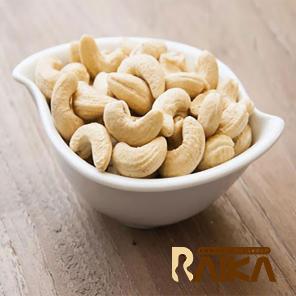 They offer a range of health benefits, including improved blood sugar control, heart health, inflammation reduction, and gut health support, making them a valuable addition to a diabetes management plan. By being mindful of portion sizes, salt intake, and overall dietary patterns, individuals with type 2 diabetes can enjoy the delicious taste and nutritional benefits of dry roasted peanuts while promoting their health and well-being for the long term. When it comes to managing type 2 diabetes, dietary choices play a crucial role in controlling blood sugar levels, preventing complications, and promoting overall health. In this context, dry roasted peanuts can be a valuable addition to a balanced diet for individuals with type 2 diabetes. Their nutrient profile, including protein, fiber, healthy fats, and essential vitamins and minerals, makes them a healthy snack option that can offer various health benefits for individuals managing the condition. One key aspect to consider when incorporating dry roasted peanuts into a diabetes-friendly diet is portion control. While dry roasted peanuts are nutritious, they are also calorie-dense, and consuming them in excess can lead to weight gain, which may impact blood sugar control and overall health. To avoid overeating, individuals with type 2 diabetes should be mindful of their serving sizes and consider pre-portioning snacks to prevent mindless eating. When enjoying dry roasted peanuts, it is also essential to be aware of the potential impact of salt content on blood pressure and cardiovascular health. Many commercially available dry roasted peanuts are seasoned with salt, which can contribute to high blood pressure, fluid retention, and other complications, particularly in individuals with diabetes. Opting for unsalted or lightly salted varieties and reading food labels carefully can help individuals with type 2 diabetes manage their sodium intake and reduce the risk of related health issues.
They offer a range of health benefits, including improved blood sugar control, heart health, inflammation reduction, and gut health support, making them a valuable addition to a diabetes management plan. By being mindful of portion sizes, salt intake, and overall dietary patterns, individuals with type 2 diabetes can enjoy the delicious taste and nutritional benefits of dry roasted peanuts while promoting their health and well-being for the long term. When it comes to managing type 2 diabetes, dietary choices play a crucial role in controlling blood sugar levels, preventing complications, and promoting overall health. In this context, dry roasted peanuts can be a valuable addition to a balanced diet for individuals with type 2 diabetes. Their nutrient profile, including protein, fiber, healthy fats, and essential vitamins and minerals, makes them a healthy snack option that can offer various health benefits for individuals managing the condition. One key aspect to consider when incorporating dry roasted peanuts into a diabetes-friendly diet is portion control. While dry roasted peanuts are nutritious, they are also calorie-dense, and consuming them in excess can lead to weight gain, which may impact blood sugar control and overall health. To avoid overeating, individuals with type 2 diabetes should be mindful of their serving sizes and consider pre-portioning snacks to prevent mindless eating. When enjoying dry roasted peanuts, it is also essential to be aware of the potential impact of salt content on blood pressure and cardiovascular health. Many commercially available dry roasted peanuts are seasoned with salt, which can contribute to high blood pressure, fluid retention, and other complications, particularly in individuals with diabetes. Opting for unsalted or lightly salted varieties and reading food labels carefully can help individuals with type 2 diabetes manage their sodium intake and reduce the risk of related health issues.
…
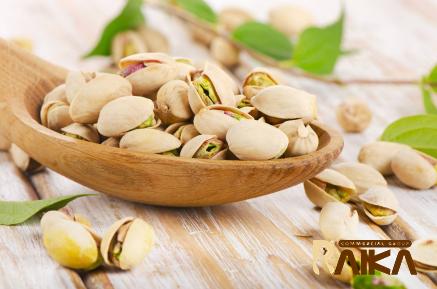 To enhance the nutritional value and variety of their diet, individuals with type 2 diabetes can explore different ways to incorporate dry roasted peanuts into meals and snacks. For example, adding chopped peanuts to yogurt, oatmeal, or smoothies can provide a satisfying crunch and boost the protein and fiber content of these dishes. Including dry roasted peanuts in homemade trail mix or energy bars can offer a convenient and portable snack option for individuals with busy schedules or on-the-go lifestyles. Furthermore, individuals with type 2 diabetes can use dry roasted peanuts as a topping for salads, soups, and vegetable dishes to add texture and flavor without relying on high-calorie and high-sugar condiments. By experimenting with various recipes and meal ideas, individuals can discover creative ways to enjoy the health benefits of dry roasted peanuts while diversifying their everyday meals and snacks. In addition to their role as a snack or meal ingredient, dry roasted peanuts can also be used to substitute less healthy options in traditional recipes. For instance, using crushed peanuts as a coating for baked chicken or tofu can provide a nutritious alternative to breadcrumb or flour coatings, adding a satisfying crunch and nutty flavor to the dish. Similarly, blending dry roasted peanuts into sauces, dips, or dressings can enhance the taste and nutritional profile of these condiments while reducing the need for added sugars or unhealthy fats. When it comes to choosing high-quality dry roasted peanuts for individuals with type 2 diabetes, opting for organic, unsalted, and minimally processed varieties is recommended. By selecting peanuts that are free from added preservatives, artificial flavors, and excessive salt, individuals can ensure they are consuming a wholesome and diabetes-friendly snack that aligns with their health goals. In conclusion, dry roasted peanuts can be a valuable and nutritious addition to a diabetes-friendly diet for individuals with type 2 diabetes. By being mindful of portion sizes, salt content, and overall dietary patterns, individuals can enjoy the health benefits of dry roasted peanuts while promoting blood sugar control, heart health, and overall well-being. Incorporating dry roasted peanuts into meals and snacks in creative ways can help individuals with type 2 diabetes maintain a balanced and varied diet that supports their nutritional needs and health goals.
To enhance the nutritional value and variety of their diet, individuals with type 2 diabetes can explore different ways to incorporate dry roasted peanuts into meals and snacks. For example, adding chopped peanuts to yogurt, oatmeal, or smoothies can provide a satisfying crunch and boost the protein and fiber content of these dishes. Including dry roasted peanuts in homemade trail mix or energy bars can offer a convenient and portable snack option for individuals with busy schedules or on-the-go lifestyles. Furthermore, individuals with type 2 diabetes can use dry roasted peanuts as a topping for salads, soups, and vegetable dishes to add texture and flavor without relying on high-calorie and high-sugar condiments. By experimenting with various recipes and meal ideas, individuals can discover creative ways to enjoy the health benefits of dry roasted peanuts while diversifying their everyday meals and snacks. In addition to their role as a snack or meal ingredient, dry roasted peanuts can also be used to substitute less healthy options in traditional recipes. For instance, using crushed peanuts as a coating for baked chicken or tofu can provide a nutritious alternative to breadcrumb or flour coatings, adding a satisfying crunch and nutty flavor to the dish. Similarly, blending dry roasted peanuts into sauces, dips, or dressings can enhance the taste and nutritional profile of these condiments while reducing the need for added sugars or unhealthy fats. When it comes to choosing high-quality dry roasted peanuts for individuals with type 2 diabetes, opting for organic, unsalted, and minimally processed varieties is recommended. By selecting peanuts that are free from added preservatives, artificial flavors, and excessive salt, individuals can ensure they are consuming a wholesome and diabetes-friendly snack that aligns with their health goals. In conclusion, dry roasted peanuts can be a valuable and nutritious addition to a diabetes-friendly diet for individuals with type 2 diabetes. By being mindful of portion sizes, salt content, and overall dietary patterns, individuals can enjoy the health benefits of dry roasted peanuts while promoting blood sugar control, heart health, and overall well-being. Incorporating dry roasted peanuts into meals and snacks in creative ways can help individuals with type 2 diabetes maintain a balanced and varied diet that supports their nutritional needs and health goals.

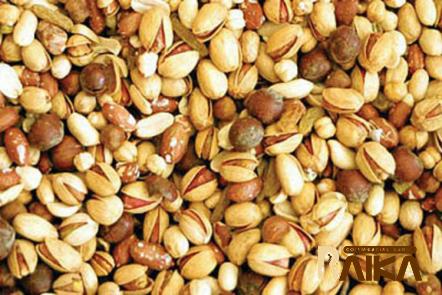

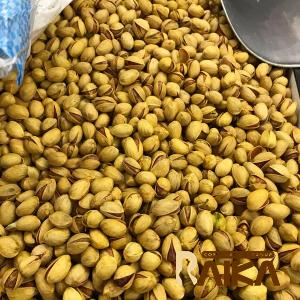

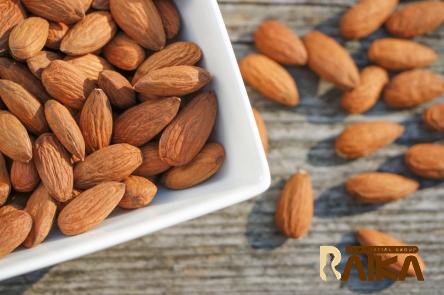

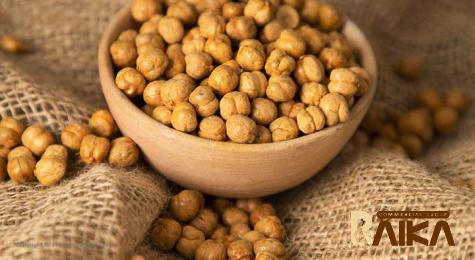
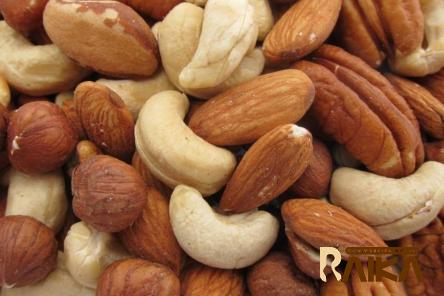

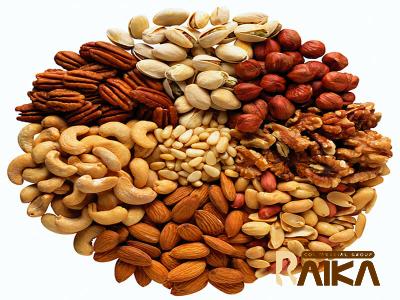
Your comment submitted.